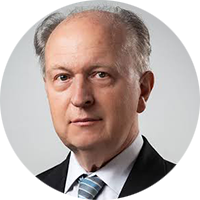Course title:
Linguistics and philology
Course code: PSL237
Course status: Obligatory
Course leader: Mislav Ježić
Course instructor:
Language of instruction: English
Total hours: 8L + 8S
Form of instruction: Lecture
ECTS credits: 8
Course content by topics:
Historical relations between philosophy, philology and linguistics research. Fundamental domains and issues in philology vs. linguistics. The process of establishing philology and grammar. Their development in Greece and India, in medieval, modern and contemporary discipline of linguistics. Separation of linguistics from philology in the 19th century: consequences and perspectives. The role of philology in collecting and analyzing corpora for linguistics research. The role of philology in raising questions concerning semantics, syntax, morphology and phonology and in examining the answers to these questions provided by linguistics. The role of philology in raising questions concerning language comparisons, language history and etymology and in examining the answers to these questions. The role of philology in conceptualizing literary and standard language, as well as registers in language use. The role of philology in defining language identity, in particular on the example of Croatian.
Learning outcomes at course level:
- To discuss historical relations between linguistics, philosophy and philology since antiquity to contemporary times; 2. To critically evaluate the concepts of native speaker and monolingualism vs. multilingualism; 3. To explain the difference between language change in the history of language and language development; 4. To explain the nature of natural idioms vs. literary or standard languages; 5. To assess the appropriateness of the methodologies of linguistics and philology in determining whether languages are the same or different
Learning outcomes at programme level:
| IU1 | IU2 | IU3 | IU4 | IU5 | IU6 | IU7 | IU8 |
| x | X | x | x | x |
Reading list:
Obligatory reading: Šrepel, M. (1899): Klasična filologija. Upute u pojedine struke klasične filologije. Zagreb: MH.; Robins, R. H. (1967, 41997): A Short History of Linguistics. New York:
Longman.; Katičić, R. (1992): Novi jezikoslovni ogledi, 2. dopunjeno izd. Zagreb: Školska knjiga.;
Katičić, R. (2013): Hrvatski jezik. Zagreb: Školska knjiga.; Vince, Z. (1978, 2004): Putovima
hrvatskoga književnog jezika. Lingvističko-kulturnopovijesni prikaz filoloških škola i njihovih izvora. Zagreb: SNL.; Brozović, D. (1970): Standardni jezik. Zagreb: MH.; Moguš, M. (1993):
Povijest hrvatskoga književnog jezika, Nakladni zavod Globus, Zagreb.; Ježić, S. (21993):
Hrvatska književnost od početka do danas (1100.-1941.). Zagreb: Grafički zavod Hrvatske.; Izborna literatura: Dionizije Tračanin (izd. 1995): Gramatičko umijeće, prir. i prev. Dubravko Škiljan. Zagreb: Latina et Graeca.; Reynolds, L. D. & Wilson, N. G. (1968, 31991): Scribes and Scholars. A Guide to the Transmission of Greek and Latin Literature. Oxford: Clarendon Press.; Bolgar, R. R. (1954, 1958, 1953., 1963., itd.): The Classical Heritage and Its Beneficiaries.
Cambridge: Cambridge University Press.; Kačić, M. (1995): Hrvatski i srpski. Zablude i krivotvorine (uz sur. Lj. Šarić). Zagreb: Zavod za lingvistiku FF.; Matasović, R. (2008):
Poredbenopovijesna gramatika hrvatskoga jezika. Zagreb: Matica hrvatska.; Katičić, R. (2001): Kroatistika na slavističkom obzorju. U: Drugi hrvatski slavistički kongres, Zbornik radova II. Zagreb, str. 569-582.; Babić, S. (2009): Hrvatski jezik ponajprije njim samim. Jezik, god. 56, br. 5, str. 161-189.; Ježić, M. (1990): Primjer odnosa između sanskrta i sanskrti. Suvremena lingvistika 29-30, str. 29-40.; Ježić, M. (1992): Nješto primjera dovitljivosti Pāṇinijeve pri slovničkome opisu. Suvremena lingvistika 34 (2/1992.), str. 103-118.; Ježić, M. (1989): Raznolikost jezičnih ustroja i jezično poimanje svijeta (Herder, Humboldt, Sapir, Whorf). U: Mišljenje i riječ o bitku u svijetu, Biblioteka Filozofska istraživanja 20, Zagreb, str. 95-122.; Ježić, M. (2013): Filozofija, mišljenje, kultura i jezik – neka opća razmatranja. Filologija, knjiga 60, str. 31-48.; Grčević, M.
(1997a): Zašto slavistika 19. stoljeća nije priznavala postojanje hrvatskoga jezika? Jezik, god. 45, br. 1, str. 3-28.; Grčević, M. (1997b): Karađićeva gledišta o hrvatskome jeziku u slavističkome
okružju. Jezik, god. 45, br. 2, str. 41-58.; Grčević, M. (1997c): Die Entstehung der kroatischen Literatursprache. Köln-Weimar-Wien: Böhlau.; Grčević, M. (2009): Jernej Kopitar kao strateg Karadžićeve književnojezične reforme. Filologija, knjiga 53, str. 1-53.; Grčević, M. (2014): Vanjskopolitički utjecaji na hrvatski književnojezični razvoj u drugoj polovici XIX. st. Jezik, god. 61, br. 1-2, str. 42-67, br. 3, str. 94-106.
Assessment of student achievement: course attendance; discussions; written exam; oral exam Quality assurance mechanism: student survey

